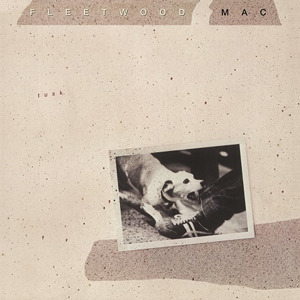Fact #183229
When:
Short story:
 Fleetwood Mac release their twelfth LP, the double-album Tusk, on Warner Bros. Records in the USA. The album is released several days early after tracks have been played without authorisation on radio stations in the USA.
Fleetwood Mac release their twelfth LP, the double-album Tusk, on Warner Bros. Records in the USA. The album is released several days early after tracks have been played without authorisation on radio stations in the USA.Full article:
Lindsey Buckingham (songwriter/guitarist, Fleetwood Mac) : Tusk was a reaction to some of the more questionable aspects of the kind of success that Rumours brought. A lot of people wanted us to do Rumours II. And there was a real need to break that mould right away, so we didn't fall into that trap, and that's what Tusk was about. Unfortunately, when we didn't sell 60 million albums, the band said, "We're not going to do that anymore. You're not going to go back to your house and work on stuff by yourself." And that's when I started making solo albums.
Christine McVie (singer/songwriter, Fleetwood Mac) : It was Lindsey who suggested we make Tusk a double album. I guess Warner Brothers wanted Rumours 2, but what they got was a bizarre collection of songs which they never really knew what to do with.
A lot of them were just Lindsey by himself, experimenting with sound in his home studio. He was using his voice as an instrument, putting whole tracks together back to front and so on. Some of it was really crazy. But if we hadn’t let him to do that he would have left the band there and then.
Lindsey Buckingham : There were the expectations that followed our tremendous success. There was a great deal of pressure to adhere to whatever the machinery wanted. Just look at the making of our Tusk album. The story is probably famous now, but the word was, when the people at Warners first heard Tusk, they saw their Christmas bonuses going out the window.
The whole idea of refuting the machinery can be viewed as more than a little awkward. You sell 16 million albums, like we did, and you've set that machinery in motion for next time. Tusk was a good album, but the focus of that album tended to be more on the visibility of the group, and the phenomenon of our previous sales figures, than on the music.
(Source : not known)
Tweet this Fact
Christine McVie (singer/songwriter, Fleetwood Mac) : It was Lindsey who suggested we make Tusk a double album. I guess Warner Brothers wanted Rumours 2, but what they got was a bizarre collection of songs which they never really knew what to do with.
A lot of them were just Lindsey by himself, experimenting with sound in his home studio. He was using his voice as an instrument, putting whole tracks together back to front and so on. Some of it was really crazy. But if we hadn’t let him to do that he would have left the band there and then.
Lindsey Buckingham : There were the expectations that followed our tremendous success. There was a great deal of pressure to adhere to whatever the machinery wanted. Just look at the making of our Tusk album. The story is probably famous now, but the word was, when the people at Warners first heard Tusk, they saw their Christmas bonuses going out the window.
The whole idea of refuting the machinery can be viewed as more than a little awkward. You sell 16 million albums, like we did, and you've set that machinery in motion for next time. Tusk was a good album, but the focus of that album tended to be more on the visibility of the group, and the phenomenon of our previous sales figures, than on the music.
(Source : not known)